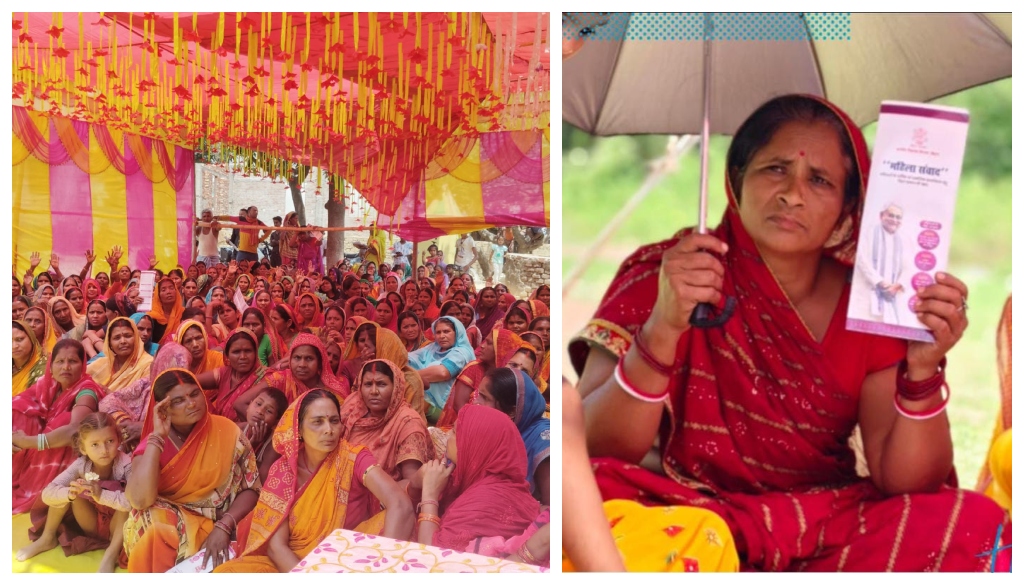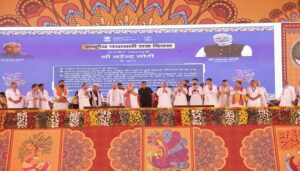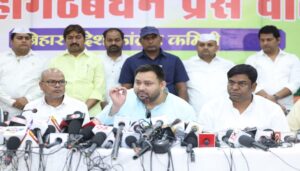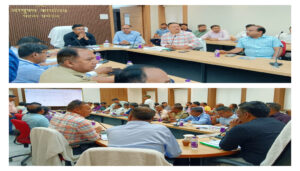Mahila Samvad: Women across Bihar raise clear demands
Thousands of women across Bihar gathered on Thursday as part of the Mahila Samvad initiative, voicing local demands ranging from roads and sanitation to education, health, and livelihood support. The state-wide programme aims to bridge grassroots concerns with policy action, with feedback being digitally recorded and shared with authorities for future planning.

Patna: Thousands of women across Bihar stepped out on Thursday to take part in the ongoing Mahila Samvad programme. The state-wide initiative aims to create a direct line between rural women and policymakers by collecting ground-level concerns and suggestions.
The seventh day of the programme saw widespread participation from women in districts including Madhepura, Jamui, Buxar, Aurangabad, Bhojpur, Purnea, Saran, Khagaria, Nalanda, Saharsa, Kishanganj, East Champaran, Nawada, Lakhisarai and Vaishali.
Women spoke on issues ranging from housing and pensions to roads and schools. In Madhepura, participants raised the need for JEEVIKA Bhawans, goat shelters and community toilets. Jamui’s women asked for better electricity supply and road repairs in rural wards. Buxar saw requests for improved sanitation, local libraries and community health centres.
In Aurangabad, many called for timely distribution of ration cards and improved access to water. Women in Bhojpur pressed for rural markets, playgrounds and technical training centres for youth. From Purnea, demands included cold storage units, better drainage and tailoring centres to support home-based livelihoods.
Kishanganj participants highlighted the need for higher education institutes in the district, while in Saharsa, women asked for improvements in drainage systems and local job creation to reduce migration. In Nawada, suggestions focused on upgrading health services and simplifying access to welfare schemes.
Women in Vaishali raised ward-specific concerns, including requests for a stitching centre, a chips factory, a homoeopathic hospital and roads in interior areas. From East Champaran, demands included solar lights, safe drinking water and support for farmers to access markets locally. In Kaimur, the call was for better pensions, waste management, new high schools and cleaner public ponds.
The programme, held in two shifts daily, begins with short films screened on LED-fitted vans to explain government schemes. Each gathering includes the distribution of printed leaflets and a message from Chief Minister Nitish Kumar. Most importantly, women’s inputs are recorded digitally and shared with district and state authorities.
Many women also shared how previous schemes had supported them, from education grants and bicycle allowances to maternity benefits and livelihood assistance. Still, across every district, women were quick to add what remains unaddressed.
In Lakhisarai, participants said their priorities were schools, playgrounds and community libraries. In Khagaria, women highlighted the need for waste disposal systems, improved street lighting and more Anganwadi centres.
The participants’ feedback is now being compiled to inform future planning and strengthen the implementation of welfare schemes.





